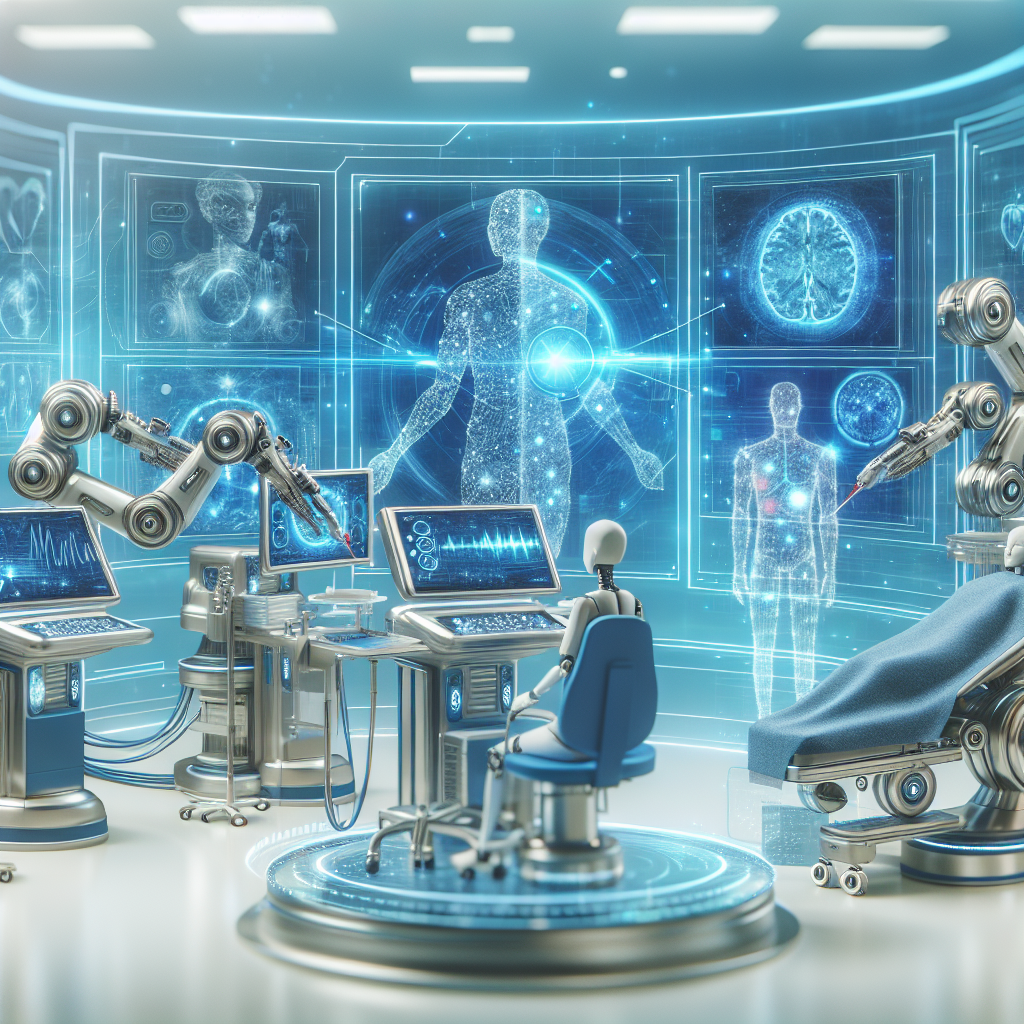Artificial General Intelligence (AGI) is a rapidly advancing field that has the potential to revolutionize healthcare in ways we never thought possible. AGI refers to a type of artificial intelligence that can understand and learn any intellectual task that a human being can. This means that AGI has the ability to think, reason, and solve problems in a way that mimics human intelligence.
The integration of AGI in healthcare has the potential to greatly improve the accuracy and efficiency of diagnosis and treatment. By utilizing the vast amount of data available in the healthcare industry, AGI can help healthcare professionals make more accurate diagnoses, predict disease progression, and recommend personalized treatment plans. In this article, we will explore how AGI is shaping the future of healthcare and how it is revolutionizing the way we diagnose and treat illnesses.
AGI in Diagnosing Diseases
One of the key areas where AGI can make a significant impact in healthcare is in the field of diagnostics. AGI has the ability to analyze and interpret vast amounts of medical data, including patient records, medical images, and genetic information. By processing this data, AGI can help healthcare professionals make more accurate and timely diagnoses.
For example, AGI can analyze medical images such as X-rays, MRIs, and CT scans to detect abnormalities that may be missed by human eyes. This can help in the early detection of diseases such as cancer, heart disease, and neurological disorders. AGI can also analyze genetic data to identify genetic mutations that may predispose individuals to certain diseases. By identifying these mutations early on, healthcare professionals can take preventive measures to reduce the risk of developing these diseases.
AGI in Personalized Treatment
In addition to diagnosis, AGI can also play a crucial role in personalized treatment plans. By analyzing patient data, including medical history, genetic information, and lifestyle factors, AGI can recommend personalized treatment plans that are tailored to the individual needs of each patient. This can help healthcare professionals optimize treatment outcomes and reduce the risk of adverse effects.
For example, AGI can analyze patient data to predict how a particular drug will interact with an individual’s genetic makeup. This can help healthcare professionals determine the most effective dosage and treatment regimen for each patient. AGI can also analyze treatment outcomes to identify patterns and trends that can help improve treatment protocols.
AGI in Predicting Disease Progression
Another area where AGI can make a significant impact is in predicting disease progression. By analyzing patient data over time, including symptoms, test results, and treatment outcomes, AGI can help healthcare professionals predict how a disease may progress in an individual patient. This can help in early intervention and proactive management of chronic diseases.
For example, AGI can analyze data from patients with diabetes to predict how their blood sugar levels may fluctuate over time. This can help healthcare professionals adjust treatment plans and lifestyle recommendations to help patients better manage their condition. AGI can also analyze data from patients with cancer to predict how the disease may progress and recommend appropriate treatment options.
FAQs
Q: How does AGI differ from other types of artificial intelligence?
A: AGI is different from other types of artificial intelligence, such as narrow AI or machine learning, in that it has the ability to understand and learn any intellectual task that a human can. This means that AGI has the ability to think, reason, and solve problems in a way that mimics human intelligence.
Q: Will AGI replace healthcare professionals?
A: While AGI has the potential to greatly improve the accuracy and efficiency of diagnosis and treatment, it is unlikely to replace healthcare professionals entirely. AGI can assist healthcare professionals by providing them with valuable insights and recommendations, but human expertise and judgment will still be essential in making treatment decisions.
Q: Is AGI safe to use in healthcare?
A: AGI in healthcare is still in its early stages, and there are concerns about the potential risks and ethical implications of using AGI in patient care. It is important to carefully evaluate the accuracy and reliability of AGI algorithms before incorporating them into clinical practice. Additionally, measures should be taken to ensure patient data privacy and security when using AGI in healthcare.
In conclusion, AGI has the potential to revolutionize the way we diagnose and treat illnesses in healthcare. By utilizing its ability to analyze and interpret vast amounts of medical data, AGI can help healthcare professionals make more accurate diagnoses, recommend personalized treatment plans, and predict disease progression. While there are still challenges to overcome in integrating AGI into clinical practice, the potential benefits of using AGI in healthcare are vast. With further research and development, AGI has the power to transform the future of healthcare for the better.

